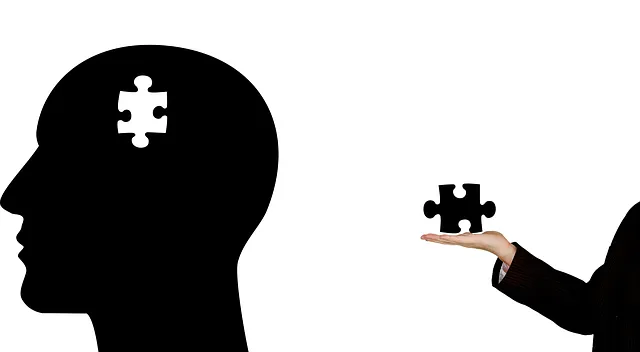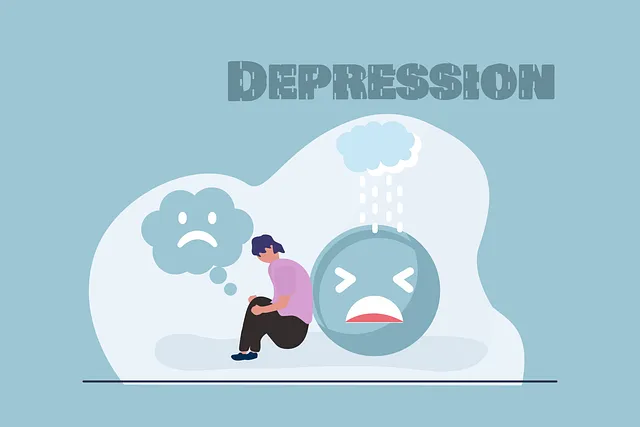The Castle Rock Kaiser Permanente psychiatry reviews emphasize the vital role of social skills training in enhancing psychiatric well-being. Through evidence-based practices like journaling, compassion cultivation, and Mind Over Matter principles, individuals with anxiety, depression, and burnout gain effective communication, empathy, and interpersonal connection skills. This holistic approach, combining medical expertise with social skills development, significantly improves emotional well-being, self-care practices, and overall mental health outcomes, as highlighted in the reviews.
Social skills training is a powerful tool for improving mental health outcomes, particularly for individuals navigating conditions like anxiety, depression, and social phobias. This article explores the intricate link between social abilities and mental wellness, delving into how psychiatry integrates social skills development in patient care. Through effective strategies and real-world examples from Castle Rock Kaiser Permanente, we showcase successful approaches, offering insights backed by positive psychiatry reviews. Discover how these methods foster resilience, enhance connections, and contribute to improved quality of life.
- Understanding the Link Between Social Skills and Mental Health
- The Role of Psychiatry in Social Skills Training
- Effective Strategies for Social Skills Development
- Case Studies: Success Stories from Castle Rock Kaiser Permanente
Understanding the Link Between Social Skills and Mental Health

In today’s world, where mental health awareness is increasingly recognized, understanding the intricate link between social skills and psychiatric well-being is paramount. Castle Rock Kaiser Permanente psychiatry reviews consistently highlight that social skills play a pivotal role in managing and improving various mental health conditions. Effective communication, empathy, and interpersonal connections are not just desirable traits; they are essential tools for enhancing mental wellness. Journaling exercises and compassion cultivation practices have been shown to foster these skills, allowing individuals to navigate their emotional landscapes with greater ease.
The relationship between social competence and mental health is two-fold. On one hand, robust social skills can buffer against the development or exacerbation of conditions such as anxiety, depression, and even burnout, which are prevalent concerns in modern society. On the other, nurturing these skills through guidance and compassionate practices can empower individuals to advocate for themselves, seek support, and maintain healthy relationships—all vital components of a holistic approach to mental wellness.
The Role of Psychiatry in Social Skills Training

Social skills training is a critical component of comprehensive mental health care, and Castle Rock Kaiser Permanente psychiatry reviews highlight its growing importance. Psychiatry plays a pivotal role in facilitating these training programs, focusing on enhancing interpersonal interactions and communication for individuals with various mental health conditions. Through specialized therapy sessions, psychiatrists help patients navigate complex social scenarios, fostering better understanding and connection with others.
In the context of emotional healing processes, this training empowers individuals to manage their conditions more effectively. Moreover, it integrates risk management planning for mental health professionals, ensuring individuals learn coping strategies that support both self-care practices and overall well-being. Castle Rock Kaiser Permanente’s approach underscores the value of combining medical expertise with social skills development for optimal patient outcomes.
Effective Strategies for Social Skills Development

Social skills training is a powerful tool for individuals with mental health conditions to enhance their emotional well-being and reintegrate into society. At Castle Rock Kaiser Permanente, psychiatry reviews highlight the significance of addressing social challenges alongside clinical treatments. One effective strategy involves role-playing scenarios, allowing patients to practice interpersonal interactions in a safe environment. This technique fosters Mind Over Matter principles by empowering individuals to manage their responses during stressful social situations.
Additionally, incorporating Cultural Sensitivity in Mental Healthcare Practice ensures that training is tailored to diverse backgrounds and experiences. By understanding cultural nuances, therapists can create inclusive activities that promote Emotional Well-being Promotion Techniques. These methods encourage self-expression, empathy, and effective communication, ultimately helping individuals build a supportive network and improve their overall social skills.
Case Studies: Success Stories from Castle Rock Kaiser Permanente

Castle Rock Kaiser Permanente has been at the forefront of innovative mental health care, with notable success stories highlighted in psychiatry reviews. Their approach integrates social skills training into comprehensive treatment plans, focusing on conditions like anxiety and burnout—issues that often coexist with other mental health disorders. Through tailored programs, patients learn effective communication strategies, assertiveness techniques, and emotional regulation skills, fostering healthier interactions both personally and professionally.
These interventions are grounded in evidence-based Mind Over Matter Principles, empowering individuals to navigate social situations more confidently. By addressing social anxiety and improving interpersonal connections, patients experience significant improvements in their overall well-being. Many have found relief from Anxiety Relief techniques taught within these programs, leading to better mental health outcomes and enhanced quality of life.
Social skills training has emerged as a powerful tool in managing mental health conditions, bridging the gap between therapy and real-world interactions. As evidenced by successful programs like those at Castle Rock Kaiser Permanente, integrating social skills development into treatment plans can significantly enhance patients’ quality of life. Psychiatry reviews highlight the effectiveness of these programs, demonstrating that improving social connections and communication skills can lead to better mental health outcomes. By combining evidence-based strategies with tailored approaches, mental health professionals can empower individuals to navigate social environments more confidently, fostering a sense of belonging and overall well-being.






